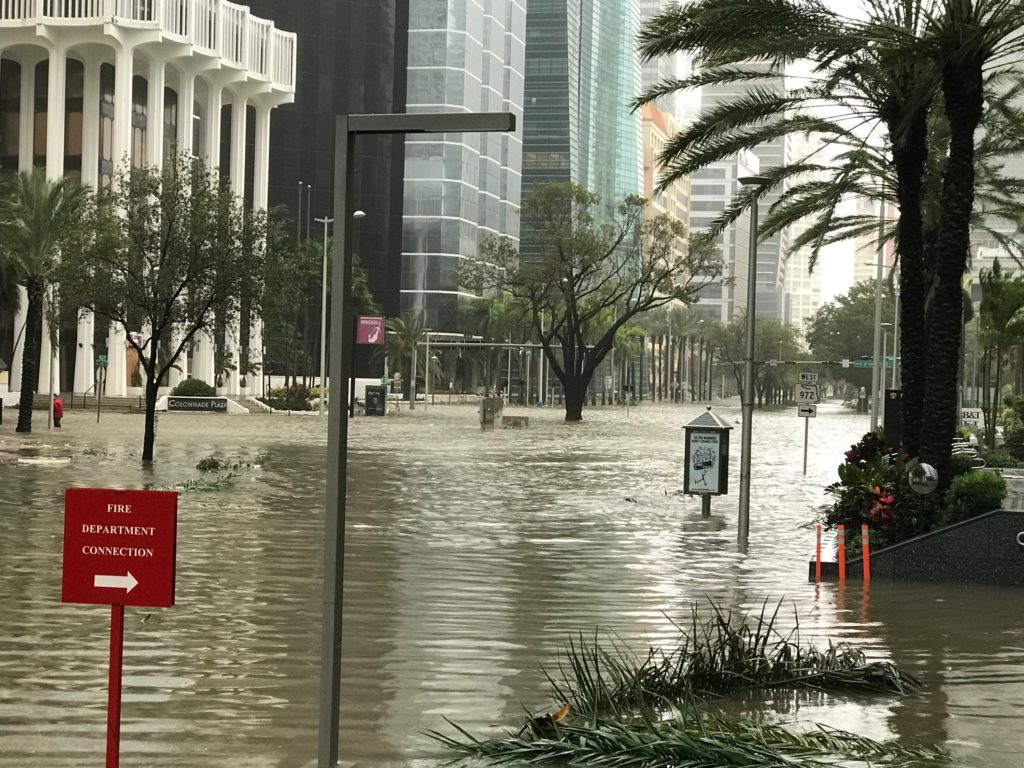We know sea rise is threatening South Florida neighborhoods. But a new global climate change report, written by 270 researchers from 67 countries, documents ways that climate change is affecting us right now.
One of those ways is in our already unaffordable housing market. That should set off alarm bells even for the most short-sighted and self-interested among us. The report, issued by some of the world’s top scientists who were convened by the United Nations, says some of the changes already are irreversible.
It says governments aren’t doing nearly enough to combat the current dangers from climate change, let alone the more devastating ones yet to come. It says there is a “brief and rapidly closing window” to quickly reduce greenhouse-gas emissions before it will be just too late to fix.

Record floods, long-term droughts, blistering heat, wildfires, dwindling water supplies and rising seas — the report offers perhaps the most detailed look yet at the global impacts already being felt and those likely to come if emissions continue unchecked.
U.N. Secretary-General António Guterres called for nations to immediately stop burning fossil fuels, saying the document is nothing less than “an atlas of human suffering and a damning indictment of failed climate leadership.” And, of course, the report by the Intergovernmental Panel on Climate Change places Florida squarely in the crosshairs.
But if all of that seems too remote — as we sit in our air-conditioned houses, shrug off “sunny-day flooding” and continue to embrace a car culture in Miami — think about the housing issue this raises, right now.
The report says Miami-Dade County already lost about $500 million in real-estate value between 2005 and 2016 alone, and the coastal flood risks in the region are only expected to keep going up. In Florida, it says, sea levels will make some neighborhoods and cities uninhabitable, forcing people to move from the coastline and onto higher ground.
That movement of wealthier people to higher ground will only exacerbate our skyrocketing housing market, further squeezing those who can barely afford to be here now. Climate gentrification, already happening in places like Little Haiti, will only get worse.
Inequalities will be compounded. And the rents that have already gone up about 34% in a single year? We can only imagine.
There are other impacts of climate change, too, devastating in different ways but directly relevant to Florida. Local governments will have to continue to elevate roads and housing to accommodate rising water, pushing up property values and pushing out more of the working class. The report called that an example of “maladaptation.”
Coral reefs are bleaching and dying from higher sea temperatures, which could cost Florida $55 billion in reef-related tourism money by 2100. Algal blooms related to climate change along the state’s West Coast already have hurt tourism.
Added up, that makes South Florida a far less desirable place. How does all of that fit in with the everybody’s-moving-to-Miami narrative that has become so prevalent during the pandemic? Well, the transplants we hear most about, with enough money to cushion themselves from any harsh reality, won’t have any real perspective on South Florida’s climate problems. New arrivals rarely do.
But this affects them, too. Lack of affordable housing for your workforce is a quick way to limit the growth of your business.
The report says all is not lost. Though it’s too late to repair some of the damage, a twin push to adapt to climate change while also halting the burning of fossil fuels as quickly as possible could reduce the devastation to come. That’s if there’s enough money and enough resolve, of course.
Local governments have been tackling the issue, the report noted, citing Miami-Dade County’s sea level rise strategy, which calls for building higher and farther away from water.
And the city of Miami is getting more than $100 million in federal and state grants to combat sea rise by installing pumps, for example, but that’s a fraction of what’s needed — something like $4 billion just to prevent the worst flooding in the next few decades.
The state has committed nearly $500 million to local governments to help with rising seas and temperatures. None of it goes toward lowering greenhouse gas, though.
The U.N. report shows just how vast a challenge climate change will pose in the near future and also how close to home it strikes, right now, on housing. It won’t stop there. Local governments and Florida have no real choice here. We must do even more to lead the way on climate change or risk losing the place we call home.
The Invading Sea is the opinion arm of the Florida Climate Reporting Network.




Drive it home! This is happening NOW!